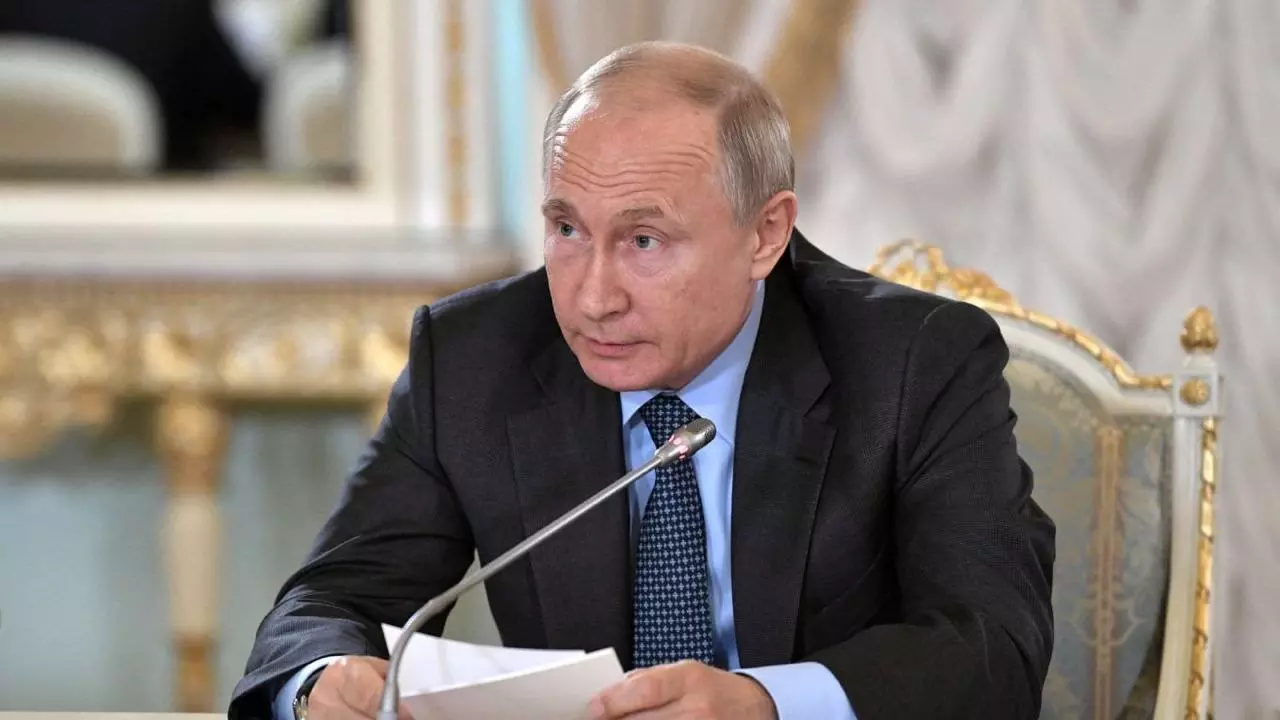
- Home
- India
- World
- Premium
- THE FEDERAL SPECIAL
- Analysis
- States
- Perspective
- Videos
- Sports
- Education
- Entertainment
- Elections
- Features
- Health
- Business
- Series
- In memoriam: Sheikh Mujibur Rahman
- Bishnoi's Men
- NEET TANGLE
- Economy Series
- Earth Day
- Kashmir’s Frozen Turbulence
- India@75
- The legend of Ramjanmabhoomi
- Liberalisation@30
- How to tame a dragon
- Celebrating biodiversity
- Farm Matters
- 50 days of solitude
- Bringing Migrants Home
- Budget 2020
- Jharkhand Votes
- The Federal Investigates
- The Federal Impact
- Vanishing Sand
- Gandhi @ 150
- Andhra Today
- Field report
- Operation Gulmarg
- Pandemic @1 Mn in India
- The Federal Year-End
- The Zero Year
- Science
- Brand studio
- Newsletter
- Elections 2024
- Events
- Home
- IndiaIndia
- World
- Analysis
- StatesStates
- PerspectivePerspective
- VideosVideos
- Sports
- Education
- Entertainment
- ElectionsElections
- Features
- Health
- BusinessBusiness
- Premium
- Loading...
Premium - Events

The Russian President seems to have discreetly worked out a succession plan to replace the erring, and now dead, Prigozhin and his close aides
In time to come, the recent death in an air crash of the enigmatic chief of the Wagner Group, Yevgeny Prigozhin, will lend itself to movie scripts, thrillers and homespun conspiracy theories. Prigozhin was identified with Wagner to such an extent that the future of the group itself is now in question.
There, however, appears little cause to “worry” about Wagner’s future. Already, over the last few days, arrangements have been made to ensure there is no disruption in the functioning of Russia’s private military contractor (PMC).
Turn the clock back to June 23 when the world was startled and Putin probably shocked at Prigozhin’s mutiny. From the battlefront in Ukraine, Prigozhin physically led a troop march of his mercenaries, capturing Russian military bases en route to the Kremlin, challenging Putin. As the world watched in amazement, the mutiny ended as abruptly as it began. The troops retreated.
Contrary to expectation, Prigozhin was quietly allowed to leave Russia and seek exile in neighbouring Belarus, governed by a regime considered Moscow’s puppet. Putin did not make a move to punish his erstwhile confidante, surprising everyone. So, on August 23, when Prigozhin’s plane crashed, the world naturally assumed Putin had had the last laugh. Of all people in the world, trust Putin to let a renegade get away. But, there is more to the story.
Two-month period
If Putin was indeed behind the air crash, he let Prigozhin survive for two months, not without reason. During this period, the Russian President seems to have discreetly worked out a succession plan to replace the erring Prigozhin and his close aides. In the air crash, Wagner’s military commander Dmitry Utkin and Valery Chekalov, the financial and business head of the group, died, too.
The top three of Wagner, including Prigozhin, were relegated to history. That should have challenged the existence of the group itself. But, no. The replacements are already in place. According to reports, Russian intelligence (GRU) chief Andre Averyanov, who was the liaison between Wagner and the Russian military state, is the natural successor.
Besides Ukraine, Wagner had extensive security operations in a few African countries. The operational head of each unit effectively becomes chief in a more decentralised network, hereafter. Under Prigozhin, around 5,000 mercenaries were despatched to around a dozen African countries – in each of which Wagner tightened security for the existing rulers and developed a close rapport with them. Among nations in the continent that Wagner has played an active role in are the Central African Republic, Mali, Burkina Faso, and Libya.
Much of the money Wagner makes in Africa from rulers, in the form of gold and precious commodities, is ploughed back into Russia to partly make up for the difficulties it has been experiencing since the last 18 months following Western sanctions.
Wagner, therefore, is too important for Russia to let it depend on one man. Prigozhin was the face of Wagner, no doubt. But this was with the total blessing of the Russian deep state, and Putin. After all, what was Prigozhin’s credentials? He was a virtual unknown until he got close to Putin and won the President’s confidence.
Prigozhin's death warrant
The Russian state opened up to Prigozhin and he turned into the most high-profile individual after Putin himself. His mutiny, whatever the reason, turned out to be his death warrant. Prigozhin was not the first, but the latest in a long line of Russian dissidents who have died painful and untimely deaths across the world. That is why it is taken for granted that Putin would have had at least something, if not everything, to do with his death.
Wagner may be Russia’s high-profile PMC, but it is not the first in the game. It is just following the steps of Western and more specifically US-driven private mercenaries like Blackwater a.k.a. Xe Services, now called Academi. Groups like Wagner and Academi are directly backed by countries like Russia and the US as they serve several useful purposes for these big powers.
To supplement soldiers for the Ukraine conflict, Wagner freed convicts from Russian jails, trained them as soldiers and sent them to the frontlines.
Wagner is also made up of former regular soldiers from around the world. Many ex-servicemen miss their time in the military and join groups like Wagner. They are well taken care of monetarily and otherwise. They are considered highly loyal to their employers. More importantly, since they are not formally associated with the military of any country, they live in a twilight zone where no internationally-recognised rules of engagement apply and they can pretty much do what they want.
America's Blackwater
The US-backed Blackwater’s track record in Iraq was marked by notoriety. The killing of around 17 civilians in 2007 in Baghdad’s Nisour Square by Blackwater mercenaries to avenge a bomb blast sent shock waves around the world. After much worldwide condemnation, four were arrested. Former US President Donald Trump pardoned them when he was in office. So much for accountability. It also shows the close proximity of the PMC to the government.
In the case of Ukraine, Wagner played a major role in the capture of Bakhmut and Soledar in the East, in some of the fiercest fighting in the ongoing conflict there.
One immediate lesson Putin appears to have learned from the Prigozhin experience is to divest Wagner of its enormous clout and divide its work among other Russian-backed PMCs like Convoy and Redoubt. Other than this minor jolt, Wagner will continue as before but with less importance.
Prigoshin’s mutiny and death are just blips in the overall game of outsourcing war to private contractors. If and when the US decides to enter Ukraine, it will most probably employ PMCs alongside the regular military personnel.
The chief of Academi, in a recent interview, expressed disappointment that US President Joe Biden had not agreed to his offer to send mercenaries to Ukraine. Biden’s reason would be part of the larger strategy of the US not to directly have its boots on the ground at the present moment. But when it decides to do so, the world will hear of US mercenaries in Ukraine much like Wagner.


